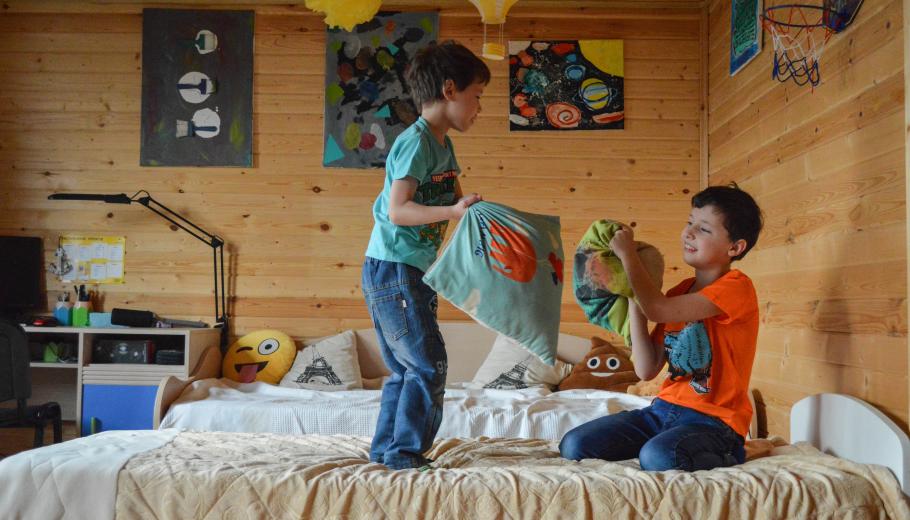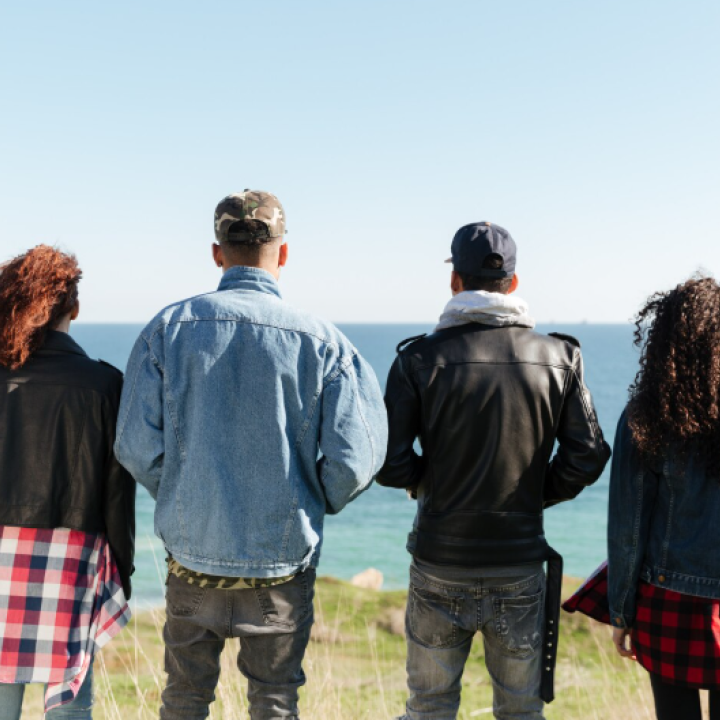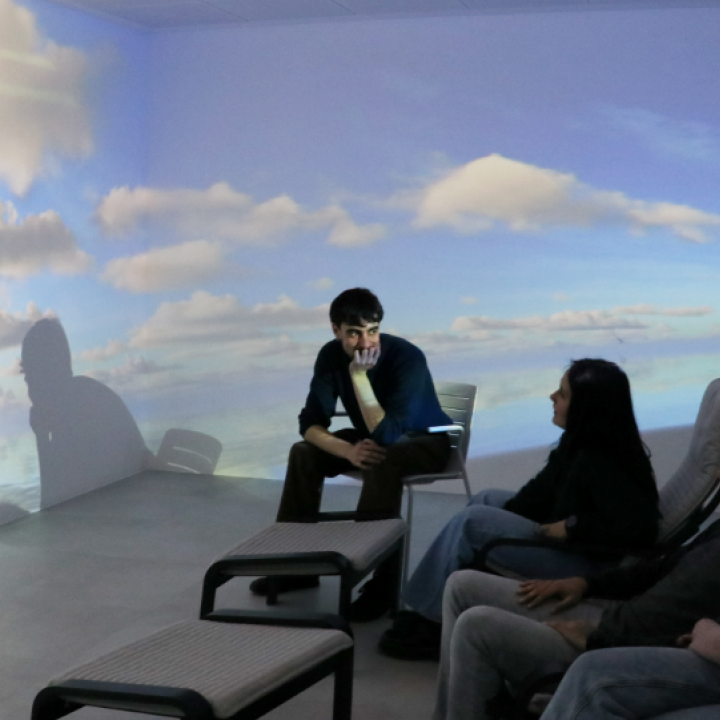Are you thinking about fostering children? Read Antònia Santos' experience as a host family.
I had been interested in foster care for many years, even before I had my biological son. As a professional in the social sector, I was aware of the importance of family fostering, as an alternative to provide a suitable environment for children who have experienced difficult social situations. Despite that interest, my boss always told me that it wasn't the time yet...
Over time, I thought again about the idea of being a host family. At the same time, I was aware that taking that step would require not only my will and involvement, but that of the whole family. During the conversations on the subject, both my twelve-year-old biological son and my partner showed curiosity and empathy when I spoke to them about the altruistic gesture of being one of those families who decided to share their day-to-day life with children and young people that they need it As a result of those conversations, the idea entered the family imagination and took on consistency, evolving into an exciting project.
Once we made the decision, I contacted the ICIF Terres de l'Ebre —Institució Collaboradora d'Integració Familiar— to offer our interest. During the first sessions, we received information about the process and then we started the training days.
Which seemed essential to us to understand that it is not enough to want to love, share and give security and tenderness. It must be possible to help foster children to understand their own personal history, to build their identity and provide support until they can return with their family of origin, be referred to another more suitable resource or until the age of majority. In this sense, there are two basic concepts that must be assimilated if you want to be a host family: that it is a temporary situation while the family of origin cannot take care of it and that it has established a contact between the child and his family of origin.
Because of my training and professional experience, together with the dedication that we could offer in the family sphere, we were favorably assessed as a welcoming family UCAE, which means "Educational Action Coexistence Unit". One of the most distinctive features of UCAE care is that it is aimed at children and adolescents who, due to their circumstances or special characteristics, have difficulty accessing ordinary care, as they require attention more specialized
Any child who has gone through a situation of helplessness after a complicated family situation requires all the institutional and assistance support to have an alternative that allows them social inclusion and adequate personal development. This goal is much more difficult when it comes to children with functional diversity or special educational needs. Hence the importance of being able to have families with the right characteristics to be able to set up a UCAE.
One morning I received a call from our reference at the ICIF "Collaborating Institutions of Family Integration". They told me about two brothers, aged 7 and 9, one of them with special educational needs (SEN). Both were in a Residential Educational Action Center (CRAE) where they had been institutionalized for years, since they were very young, and were candidates to be taken in by a UCAE host family. When he told us his story we didn't think twice, and that's when we started the race and the family expanded. We launched a couple of months. First there were a few afternoons under the supervision of the ICIF technician, who has always accompanied and supported us. Then we moved on to some Saturdays, whole weekends and finally, after the school year ended, we welcomed them into our family.
The beginnings were idyllic, "we were on our honeymoon" but after a while, there were days when I thought we were taking one step forward and two steps back. The adaptation was not easy and, although they were aware of it, the children's needs represented very high difficulties. Doubts arose about our ability to help them as they deserved. They didn't have it easy either, with their insecurities, they had started a life with a new family, a new environment, new rules and customs, as well as a new school, with classmates who asked them who they were and where they came from. But, nothing worthwhile is easy.
Our journey with fostering has revealed to us that the network of resources, the community and social ties are essential for the adaptation and development of these children. In our case, my professional training and the work experience acquired over the years, helped us go beyond the host family and build a network of involvement: entities such as the Institut Collaborador Integració Familiar ( ICIF), Mental and Youth Health Center (CSMIJ), Psychopedagogical Care Team (EAP), primary school, secondary school, summer recreation centers...
As for the people around us, the grandparents and the rest of our family, it has facilitated coexistence and bonding, protecting affections. Supporting us in times of need or when a weekend of rest has been necessary. We also want to emphasize the importance of friendships, which gave us wonderful moments of socialization with the children. Although, unfortunately, we have found that we still have a long way to go to become a truly humane, inclusive and diverse society. Sadly, we have been able to discover people in our environment with regrettable prejudices.
Thanks to the foster care, we have now been a large family for a little over five years. We have covered a race together that has been very worthwhile, I am very satisfied with my foster children and with the bonds we have built together. We are in the best moment of the race.
Today we begin to glimpse new challenges. We leave childhood behind and enter the not always easy adolescence. We hope to be able to reach the goal of fostering, but not the end of the bond, and see how these young people build their future as adults.
Anthony Santos
Social worker of the technical team and the abuse assessment teams (EVAMI)





